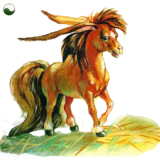On fantasy and capitalism (2003) · 11:02pm Dec 23rd, 2018
Here is old work I found while searching for some Robocop-related thoughts.
https://www.ejumpcut.org/archive/jc46.2003/kapur.potter/index.html
At the core of branding strategy is the need for an easy summary. Any degree of complexity creates confusion and therefore difficulty in sustaining a brand image. As Naomi Klein explains, the success of a branding strategy, driven by synergy, depends upon repetition and visibility.[11] The correct way to imagine a brand, as Janet Wasko, has suggested, is to think of it as the hub of a wheel; it branches out into various products all designed to repeat the brand image. Harry Potter as a gay icon, for example, would be problematic since it would introduce conflicts. But reducing magic to a series of special effects is entirely compatible with today’s marketing strategy, aimed towards reducing any complexity.[12] The whole film built around a branding strategy, therefore, will have the textual complexity of a commercial or a movie trailer.
Good thing fans of My Little Pony not as actively pushed as it was with Harry Potter fans back in the day. Or may be not so good, because assumptions about 'eventually good and self-regulating society' will remain in us for a little too long ..
Even more revealing of the restrictions on mass marketed fantasy was the bitter battle launched by AOL-Warner against fan websites. AOL Warner issued letters of warning to Harry Potter fans, most of them teens and preteens, asking them to stop using the Harry Potter name. The first such letter was sent in December 2000 to fifteen-year old, Claire Field, asking her to take the domain name HarryPotterGuide.co.uk off her site. That letter ended with the threat:
If we do not hear from you by 15 December 2000 we shall put this matter directly into the hands of our solicitors.[14]
In response fans set up sites with wonderfully appropriate names like www.potterwar.org.uk. Other fans similarly threatened by Warner Brothers contacted them. These included, Catherine Chang, a fifteen years old from Singapore who had already relinquished rights to her domain name, www.thehpn.com ; Sung Yoo, a twelve years old who was threatened for his site www.HarryPotterFAQ.com; and thirteen year olds Ross McCaw and Peter Walker, regarding their site, www.HarryPotter-world.com.
Another site held by the Defense Against the Dark Arts (DADA) www.dprohpet.com/dada/ called for a boycott of Potter merchandize except for the books. They demanded that Warner Brothers pay reparations by making substantial donations to UNICEF and giving premiere tickets to fans they had threatened, in order to really, “show how sorry they feel.” In the face of the bad publicity Warner Brothers withdrew their threats of lawsuits in March 2001. Nevertheless, the battle with corporate control over ideas is not yet won. As www.potterwar.org.uk summarized the withdrawal of legal action against fans is not a victory but victor(-ish). Warner Brothers did not return the domains they had taken. More importantly, Harry Potter policing and resistance is only one battle in what promise to be a continuous war between corporations and fans.
The battle over Harry Potter’s name clearly indicates the limits of fantasy when branded by media corporations. Just as branding was originally a practice where owners stamped cows with their names to mark them as private property, corporations are now engaged in claiming our imaginations. If it were true that we get the films we want, then why this contest over how we interpret these films? That the battle over our imaginations is not yet won is clear by the contradictory relations media corporations have with fans. On the one hand, fans do these corporations’ work, buying their products and thus creating profits. On the other hand, when fans begin to create alternatives, they threaten the iron grip these corporations seek to retain over their brands. The true nature of the relation between media corporations and audiences in revealed when the former’s control is threatened. Then no longer posing as democrats who make what audiences want, these corporations transform into powerful policing agents.
Anyway, use your imagination for thinking.. while it still yours...




